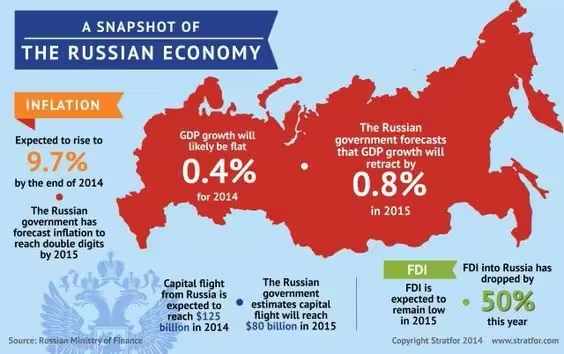The relationship between the Russian economy and the U.S. election processes has become popular in investigations in the recent past. This is quite understandable given the changing dynamics of globalization, where the economic possibility of one country does have further at a political level. The Russian economy, plundered by its resources and politics, has shaped U.S. elections several times in terms of the campaign’s focus, techniques, and even the outlook by voters.
The Russian Economy in Brief
Basic Economic Constructs
A strong Russian economy is based on its mineral wealth, especially its oil and gas deposits. Not only do these resources enrich the Russian economy, But these resources also provide Russian economy with means of earning political capital. Russia is among the leading oil producers across the globe, whereby an increase or decrease in oil prices usually greatly influences the economic stability of the nation. When the oil prices hit the roof, the nation enjoys the flourishing economy and a strong government. But low prices are a great source of economic problems which often tend to lead to violent conflicts that extend beyond the borders of Russia.
Sanctions and Economic Pressure
Western sanctions, which have been placed due to a myriad of geopolitical and security challenges such as the annexation of Crimea in 2014 and the alleged interference in the US elections, further exacerbate the economic situation in Russia. These sanctions have caused pressure on the Russian economy, resulting in inflation, currency depreciation and lowering foreign investments. But at the same time, it also helped to develop the narrative of resilience amongst Russian leadership that sanctions are but a Western endeavor to contain the sovereignty of Russia. This narrative becomes important in the context of how the Russian population is swayed and how the Russian government deals with the US when there are elections.
Russian Interference in US Election
Cyber Espionage and Influence
Russian interference in the elections of US democratic institutions has an aspect of the Russian economy. However, the instability of the economy in Russia will probably prompt willing aggressors who seek weakness in US elections to make their move. Cyber warfare has since evolved to include disinformation campaigns as actions permitted by the Kremlin to shape public opinion and deepen discord in the American electorate. These strategy targets the American populace not only in a bid to garner votes for certain individuals but also to undermine the elections in their entirety.
Economic Relations and Political Context
The relationships are, moreover, very delicate as far as economic relations between Russia and the U.S. are concerned. Even though sanctions have caused a lot of disruptions, there are a few areas that command some level of mutual interest. For instance, in the course of discussing American energy policies, Russia usually finds its way in the debate on how American energy independence and the place of Russian gas in Europe are interlinked. All these discussions could be used by candidates to pursue their campaign agendas based on national security interests or economic benefits related to Russian energy exports.
Voter Attitudes and Election Campaigns
However, the Russian economy rhetoric can impact voters’ viewpoint, especially when used with caution. Likewise, candidates may choose to attack their opponents on the foreign relations of the opponent who usually attacks the economy of Russia. A candidate may cite the need for a strong US economy to ensure that Russia does not expand its tentacles. This is to say that America must defend its interests. such a statement would be appealing to voters, especially those who are anxious about America’s future in foreign matters and threats.
Case Studies and Recent Elections
The 2016 Presidential ElectionIn the recent elections in the USA, the interest and factor of the russian economy is prominently observed. Such messy imployments such as espionage, however, precede ‘interference’ in the Russian case: it was always intertwined with Russian economy in US poltics. The 2016 presidential elections were accompanied by numerous allegations of Russian meddling which..) made it установлена зависимость .. They tried to push a narrative and fueled discontent through agreed upon issues such as immigration and race. This, however, was not just a campaign, it was a strategic plan to prey on the discontent for economic reasons amongst the ameriacn voters.
The 2020 Election Context
Regarding Russia, the discussions also continued to gain traction in the year 2020. Mostly due to the effects of the COVID-19 pandemic and its subsequent impact on the global economy. The candidates naturally had to dissect the America especially struggling one and the un, the russian collusion article, ukranian weakness etc. We often heard foreign countries intervene in elections especially when US was recovering which most likely takes into account Russia without even questioning.
КонклюжнRussian economy is not just some out of sight out of mind form of thinking for USA internalctional relation practitioners but also an integral part of election strategies. The various Russian economic models emanating diaspora and US foreign relations and local political fabric create a peculiar mix that complexifies the candidates and speaking internal us elections.
In a similar manner,
we delve into how the Russian economy will continue to have implications on the elections in the USA in the years to come. The electorate will also be required to understand the interplay between domestic and foreign economies in order for them to intelligently engage with the issues. At the end of the day, the relationship between these two countries in bringing about the relevance of the informed electorate to the sustenance of democracy cannot be overemphasized.


